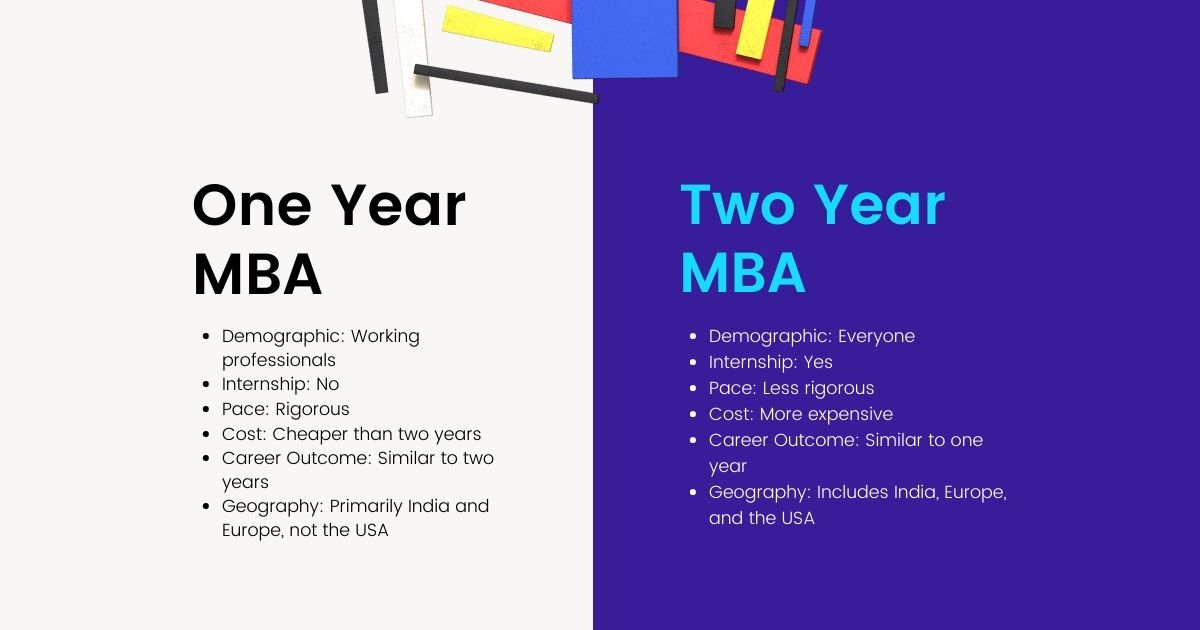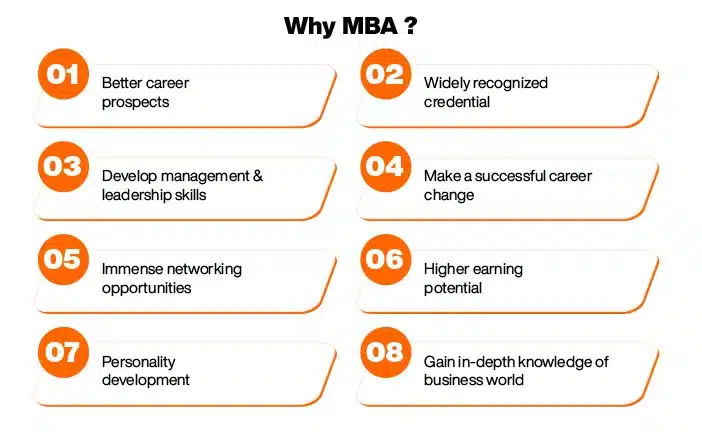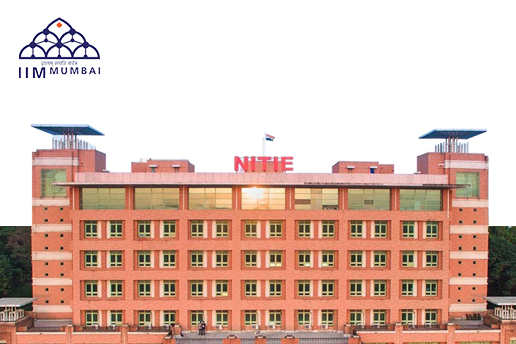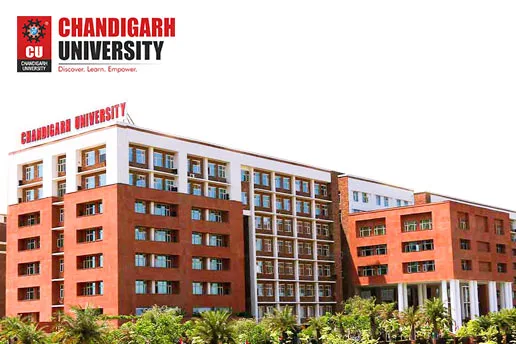Essential Differences Between 1-Year MBA and 2-Year MBA You Need To Know
Table of Contents

One of the most popular postgraduate degrees sought after by professionals who are aiming to move up the career ladder is the Master of Business Administration (MBA). Nevertheless, the decision to choose a 1-year MBA in India or a 2-year MBA programme can be a critical one.
Each of the MBA durations has different unique features, targeting different professionals’ needs, people’s learning preferences, and career objectives. In this blog, we will discuss the overall differences between a 1-year MBA in India and a 2-year MBA, which will help you decide rationally according to your career goals and background.
What is an Online MBA Programme?
An online MBA is a postgraduate degree programme that offers a convenient mode of skill enhancement for graduates and working professionals. This course teaches skills that help students identify and analyse business opportunities.
Dr. D.Y. Patil Vidyapeeth (Deemed-to-be-University) offers many specialisations in online MBA courses, such as an MBA in human resource management, marketing management, finance management, project management, IT management, operations management, international business management, and hospital and healthcare management.
Online MBA courses in India are now available online with a duration of 12 to 20 months, which is extended to 2 years. Online MBA programmes are available globally on online websites, so students can opt for such courses from any state, city, and country. The eligibility criteria for an online MBA are that a student must graduate in a recognised field from an affiliated university with passing marks of 50%. This course prepares students for the future workplace.

*thembaedge.com
Understanding the Difference Between 1-Year MBA and 2-Year MBA
Online MBAs of one year have gained popularity over the last decades, and many students now opt for full-time MBA programmes. Online MBA courses rarely offer internship options.
- 1-Year MBA in India: It is an advanced course for experts who have been in the industry for a long time. This course emphasises primarily the core business aspects, leadership skills, and specific expertise within a short time frame.
- 2-Year MBA in India: This is a program that is similar to a traditional MBA but offers a wider range of subjects, more practical internships, deeper specialisation options, and better connections for fresh graduates and early-career professionals. Normally, an online part-time MBA usually does not last for two academic MBA years, but still, it is a standard two-year online full-time course.
The major differences between a 2-year MBA and a 1-year MBA in India are discussed below:
1. Duration and Time Commitment
One of the most visible differences between the two is that one is shorter and the other is longer.
- 1-Year MBA in India: This degree is an intensive, fast-track programme that compresses a two-year curriculum into 12–15 months. It is best suited for professionals who want to upskill and return to the workforce quickly.
- MBA 2 Years: The traditional programme spans 24 months, providing a well-paced learning experience with multiple breaks, including summer internships, live projects, and research opportunities.
Which One to Choose?
If you are a mid-career professional looking for career acceleration without taking a long break, a 1-year MBA in India is perfect. However, if you are a fresh graduate or a professional with less work experience, the 2-year MBA provides a more comprehensive learning experience.
2. Eligibility and Work Experience Requirements
The prerequisites for enrolling in a 1-year MBA in India and a 2-year MBA can differ significantly.
1-Year MBA in India:
- Any relevant work experience is a must.
- It is specifically designed for working professionals who aspire to become leaders.
- It caters specifically to those who have already experienced the industry and wish to advance.
2-Year MBA in India:
- Can be taken with 0–2 years of work experience.
- If you are a recent graduate or an early-career professional and want to ensure that you have successful business fundamentals to build on, this programme is the most suitable for you.
- It is an incredible chance for the students to build a strong career with an internship along with learning new skills.
Which One to Choose?
If you are a seasoned professional, go for a 1-year MBA in India to upskill and advance quickly. If you are a recent graduate or a career switcher, a 2-year MBA will allow you more time to explore business concepts and build your professional network.
3. Curriculum and Learning Approach
The curriculum design differs significantly between a 1-year MBA in India and a 2-year MBA.
1-Year MBA in India:
- Highly accelerated and intensive.
- Covers core business subjects and specialisation electives in a short period.
- Focuses on case-based learning, leadership training, and strategic decision-making.
2-Year MBA in India:
- Allows students to explore subjects in-depth over a longer period.
- Includes internships, research projects, and live industry collaborations.
- Provides a structured and immersive learning experience.
Which One to Choose?
If you already have industry knowledge and want a quick learning boost, opt for a 1-year MBA in India. If you need more exposure to business fundamentals and want to gain work experience through internships, a 2-year MBA is a better choice.
4. Cost and Return on Investment (ROI)
Cost is a significant factor when choosing between an MBA programme.
1-Year MBA in India:
- Costs are often lower for a 1-year MBA in India than a 2-year MBA because of the shorter duration.
- Less opportunity cost, as professionals can return to the workforce sooner.
- Professionals can quickly resume higher-paying roles, resulting in a higher ROI in a short span of time.
2-Year MBA in India:
- The cost of an MBA programme is typically higher due to extended tuition fees, living expenses, and opportunity costs (two years without full-time income).
- ROI is long-term, as graduates start with entry- or mid-level roles and grow gradually.
Which One to Choose?
If you want a faster ROI and lower overall cost, go for a 1-year MBA in India. However, if you are ready to invest more time and money in long-term career growth, a 2-year MBA may be the right fit.
5. Placement and Career Prospects
A Master of Business Administration (MBA) is definitely the start of a long and fruitful career path. As more and more companies grow at a global level, MBA graduates are becoming more sought-after professionals.
This is because an MBA degree fosters leaders with analytical abilities, effective decision-making skills and strong interpersonal skills. The factor affecting placement that shows the highest percentage among the respondents is the work of a student, such as the work of a student from outside the institution.
1-Year MBA in India:
- Designed for career acceleration rather than job hunting.
- Candidates often return to their previous companies with a higher salary and better roles.
- Helps experienced professionals transition into leadership roles.
2-Year MBA in India:
- Provides a well-structured placement process, where fresh graduates secure jobs through campus recruitment.
- Suitable for those looking for a career switch or fresh job opportunities.
Which One to Choose?
If you are already employed and looking for a promotion or industry transition, a 1-year MBA in India is ideal. If you need campus placement support and time to explore career options, a 2-year MBA is the better choice.
6. Learning Flexibility: Online vs On-Campus
In today’s digital world, many professionals prefer flexible learning options like 1-year online MBA programmes.
1-Year Online MBA:
- Allows working professionals to study without quitting their jobs.
- Provides access to virtual classrooms, industry case studies, and networking events.
- Ideal for those who want to balance work, education, and personal commitments.
Traditional 2-Year MBA (On-Campus):
- Offers an immersive campus experience, fostering peer interactions and extracurricular learning.
- Provides face-to-face faculty interaction and hands-on projects.
- Best suited for students who prefer full-time academic engagement.
Which One to Choose?
If you need flexibility while working, a 1-year online MBA is a great option. If you prefer on-campus engagement and structured learning, a 2-year MBA is better.
Comparison between a 2-year and 1-year MBA Programme
| Basis for Difference | MBA 2-year programme | MBA 1-year programme |
|---|---|---|
| Academic background eligibility | A student must pass a bachelor’s degree with 50% marks from a recognised university in business or a related field. | A student must be an undergraduate in business or economics and also have good knowledge of quantitative areas. |
| Requirement of Work experience | Work experience spanning 3–5 years is required in this course. | A minimum of three years of work experience is required in this course. |
| Other essential requirements | The students must pass the GMAT entrance exam with scores of 700+, the TOEFL exam with a minimum of 100+ scores, and also clear interviews. | To get admission to a one-year online MBA programme, students must clear GMAT and GRE entrance exams and clear interviews. |
| Career goals | After the 2-year MBA programme, students can get hired as brand managers, account managers, consultants, marketing managers, project managers, entertainment managers, and many more. | After getting the 1-year MBA in India certificate, students opt for multiple positions as managers. |
| Curriculum | The first-year subjects of a two-year online MBA consist of fundamental management in accounting, marketing, organisational behaviour, economics, etc. The second-year specialisation in the subjects depends on the electives. | This programme focuses on the foundational areas and many specialist skills in domains like accountancy, finance, etc. |
There are different benefits students avail from 1-year and 2-year online MBA programmes. The one-year programme is easier to manage even with a full-time job. It also allows candidates to start repaying their student loans after one year. On the other hand, a two-year online MBA builds deeper and better understanding and learning than the one year programme.

*onlinemanipal.com
Conclusion
Quality education can be a step in the right direction for a student’s career. An online MBA from Dr. D.Y. Patil Vidyapeeth (Deemed-to-be-University) builds successful careers in numerous fields. Both one-year and two-year online MBA courses have their benefits. The one-year programme is more suited to working professionals seeking accelerated career growth. In contrast, the two-year MBA programme is suitable for those students with limited work experience. For more information, click here.
Choose a 1-year MBA if you have prior work experience, want a quick career boost, and cannot afford a long break. Opt for a 2-year MBA if you are a fresh graduate or need a structured learning journey with placement assistance. Consider a 1-year online MBA if you need flexibility while working.
Frequently Asked Questions
What is an online MBA programme?
An online MBA is a postgraduate degree programme that offers a convenient mode of skill enhancement for graduates and working professionals. This course imparts skills that help students identify and analyse business opportunities.
What qualifications do I need for an online MBA programme?
The qualification for an online MBA requires graduation in a recognised field from an affiliated university with passing marks of 50%.
Is an online MBA programme difficult to pursue?
Getting admission to an online MBA is similar to the traditional programmes. The students just need to choose the right speciality based on their career goals.
How to apply for Dr. D.Y. Patil Vidyapeeth Online MBA?
The students need to fill out the online application form at the official website of Dr. D.Y. Patil Vidyapeeth (Deemed-to-be-University) and verify their phone number and email. They should then fill out the complete personal, academic, and employment details on the form and pay the admission fee.
What is the main difference between a 1-year MBA and a 2-year MBA?
1-year MBA in India is an accelerated programme designed for experienced professionals, focusing on leadership and strategic skills in a short duration. A 2-year MBA is a traditional programme that provides a comprehensive business education, including internships and networking opportunities, making it ideal for fresh graduates or early-career professionals.
Who should opt for a 1-year MBA in India?
A 1-year MBA in India is best suited for mid-career professionals with at least 5+ years of work experience who want to upskill, transition into leadership roles, or switch industries without taking a long break from work.
Who should opt for a 2-year MBA?
2-year MBA is ideal for fresh graduates or professionals with 0–2 years of work experience who want in-depth learning, internship exposure, and campus placements before entering the job market.
Is a 1-year online MBA as valuable as an on-campus MBA?
Yes, a 1-year online MBA from a reputed institution holds significant value, especially for working professionals who want flexibility while studying. Many accredited online MBA programs offer the same curriculum, faculty, and networking opportunities as on-campus alternatives.
Do companies prefer a 1-year MBA or a 2-year MBA?
Companies value both 1-year and 2-year MBA graduates based on their experience and skills. A 1-year MBA graduate is often considered for leadership and managerial roles, while a 2-year MBA graduate typically starts in mid-level roles with opportunities for long-term growth.
Does a 1-year MBA have internships?
Most 1-year MBA programs in India do not include traditional internships due to their shorter durations. However, they often provide industry projects, live case studies, and networking opportunities that help in career advancement.
Which MBA has a better return on investment (ROI)?
A 1-year MBA in India generally offers a faster ROI since professionals return to the workforce quicker, whereas a 2-year MBA may take longer to yield financial returns due to the extended duration and tuition costs.
Is a 1-year MBA more difficult than a 2-year MBA?
A 1-year MBA in India is more intense and fast-paced, covering the same core concepts as a 2-year MBA in half the time. It requires strong time management skills, making it more challenging for some students.
Can I switch careers with a 1-year MBA in India?
Yes, but it depends on your prior experience. A 1-year MBA in India is best for professionals who want to transition into leadership within their industry. If you want a complete career switch, a 2-year MBA with internships and placements may be a better choice.
How do I choose between a 1-year and a 2-year MBA?
Consider these factors when choosing:
- Work experience: If you have 5+ years, go for a 1-year MBA in India. If you have less, opt for a 2-year MBA.
- Career goals: For fast-track career growth, choose a 1-year MBA in India. For career exploration and placements, choose a 2-year MBA.
- Time commitment: If you can take a short break, go for a 1-year MBA in India. If you need more learning time, opt for a 2-year MBA.















